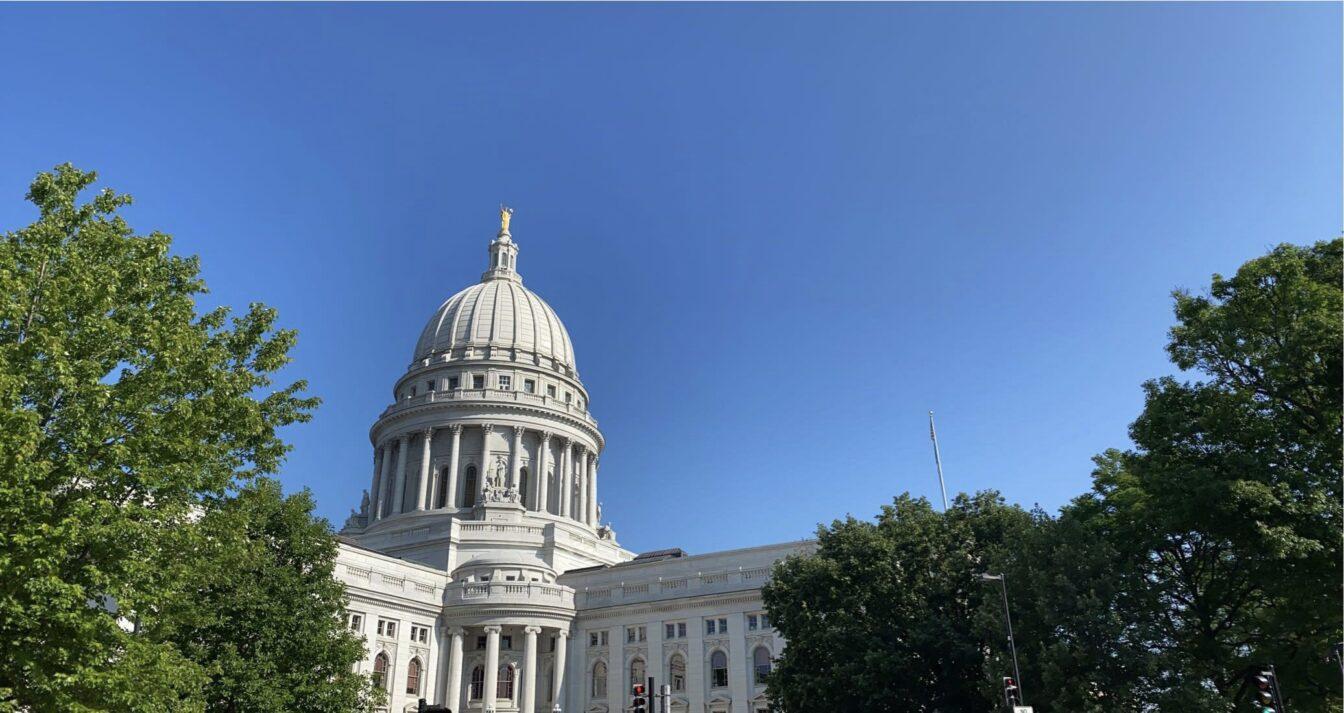The Committee on Colleges and Universities discussed Assembly Bill 551 at a community hearing Thursday, Oct. 26. The bill would codify freedom of speech and press rights for public school students from sixth to 12th grade and students enrolled at a Universities of Wisconsin institution or technical college.
The bill applies to school or institution-sponsored media “regardless of whether the school-sponsored media is supported financially by a public school, uses the facilities of the public school, or is produced in conjunction with a class in which the pupil is enrolled.”
Institution-sponsored media is defined in the bill as “any material that is prepared, substantially written, published, or broadcast, in any media, by a student journalist at an institution, under the direction of a media adviser, and distributed or generally made available to students enrolled in the institution.” It does not include material intended solely for use in a course offered at the institution.
According to the bill, the UW Board of Regents, each technical college district board and public school boards would also be required to adopt a policy related to freedom of press for student journalists that includes an appeals process. The bill does not protect expression that is libelous or slanderous, obscene, constitutes an unwarranted invasion of privacy or violates state or federal law.
Since the 1988 Hazelwood School District v. Kuhlmeier U.S. Supreme Court case decision which held that schools are not required to affirmatively promote some types of student speech under the First Amendment, 17 states have passed bills similar to AB551 to counteract the impact of the decision.
The bills are pushed by New Voices — a student-run nonpartisan grassroots movement of state-based activists within the Student Press Law Center who seek to protect student press freedom with state laws.
Stoughton High School Junior Simon Mehring has advocated for the legislation for over a year, and saw it introduced earlier this month initially by Sen. Rachel Cabral-Guevara (R-Appleton), Rep. Tom Michaliski (R-Elm Grove) and Rep. Dave Murphy (R-Greenville).
UW professor of American politics and political theory Howard Schweber said these types of free speech bills reach across the aisle.
Twelve Republican representatives — Rep. Michalski, Rep. Murphy, Rep. Behnke, Rep. Brandtjen, Rep. Dittrich, Rep. Goeben, Rep. Gundrum, Rep. Maxey, Rep. O’Connor, Rep. Penterman, Rep. Rettinger and Rep. S. Johnson and one Democratic Representative — Rep. Jacobson introduced the bill at the Oct. 26 hearing. It was cosponsored by Republican Senators Cabral-Guevara and Tomczyk and Democratic Sen. Spreitzer.
Schweber said while he approves of college-age student journalists having complete freedoms of speech, it could be a “disastrously bad idea” to award the same freedoms to middle school and high school students.
“I understand that the impulse here is to spread freedom as widely as possible,” Schweber said. “But, particularly when you’re talking about something like journalism, freedom goes along with responsibility and understanding. And in this instance, I think this is a reckless and ill-advised extension of freedom to people who cannot be expected to know how to use it.”
During the 2023 legislative year, New Voices bills were introduced in Connecticut, Kentucky, Missouri, New York, North Carolina, Pennsylvania, Texas and West Virginia, where the bill became law. Aside from Wisconsin, there are active New Voices campaigns in Florida, Georgia, Illinois, Michigan, Nebraska, New Mexico and Ohio, according to the SPLC.
“The result of Hazelwood censorship is not that students do not grapple with the issues that make adults nervous, it is simply that they do so disempowered by their administrators and informed by rumor and social media algorithms instead of rigorous fact-checking and journalistic ethics. Students learn that adults believe them incapable of the sort of discourse we expect them to engage in the moment they graduate,” the SPLC said in a statement of support for AB551.
Now, amendments to the bill may be made before it is passed in the legislature. Then, Gov. Tony Evers will sign or veto it.
Editor’s Note: The Badger Herald is a fully independent newspaper that is not supported financially by a public school, does not use the facilities of the public school and does not produce content in conjunction with a class. It would not be affected by this bill.


